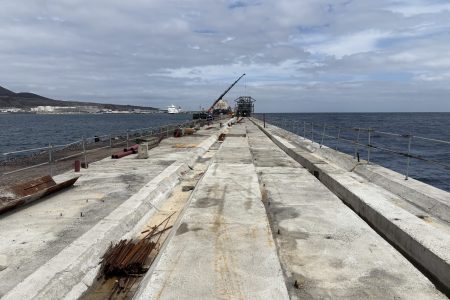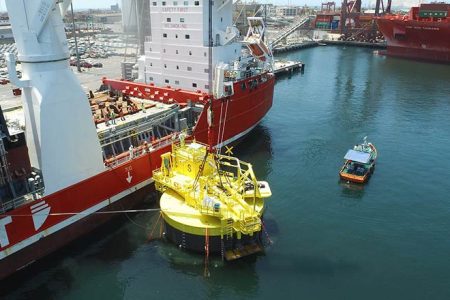
CLIMPORT will position the Spanish port sector
as a leader in technologies adapted to climate change
in the field of port design and construction
Due to their long service life and coastal location, port infrastructures are particularly vulnerable to the effects of the effects of climate change. In view of this evidence, the need arises to establish new methodologies for port design and construction that take into account the effects associated with climate change.
To address this problem, the project entitled “Climate Change Adapted Port Infrastructure Design and Construction Modeling System” (CLIMPORT) was formulated; it has been co-financed under the Call for Public-Private Partnership Projects 2022.
CLIMPORT is being executed by a public-private consortium, led by FCC Construcción, and made up by the Institute of Environmental Hydraulics of the University of Cantabria. (IHCantabria), three large construction companies (FCC Construcción, Dragados y Rover Maritime) and three large engineering firms (the area of engineering of Acciona, the group of engineering and technology of Sener and the engineering area of Grupo Amper, Proes Consultores), who have extensive experience in the field of maritime engineering and construction. The execution period of this project is from October 1st, 2023 to September 30th, 2026.
This project aims at the design and construction of port infrastructures adapted to climate change. innovative system that considers the effects of climate change on the conception of the resilient port structures, which is essential to ensure sustainable mobility.
It will generate an innovative modular system that will incorporate new professional methodologies for the design and construction of port infrastructures, integrating statistical tools, databases, international standards and state-of-the-art construction procedures.
One of the innovative elements of the CLIMPORT project is the explicit addition of the analysis of risks associated with climate change; another innovative element is the integration of variables to design and build ports, considering different temporal and spatial scales, which represents a unique approach in the international arena.
Key aspects of the CLIMPORT project include: the analysis of climate risks in port design and construction, incorporating the effects of climate change and quantifying the uncertainty of results; the development of the digital twin regarding the hydraulic behavior of the port, for different phases of its life cycle; cooperation with BIM philosophy; the modular system that allows for great versatility and scalability and the characterization of the potential of renewable energies in ports.
Participation in this project demonstrates the corporate social responsibility of all public-private consortium partners. This can be seen because the implementation of CLIMPORT is aligned with the Sustainable Development Goals (SDGs), especially with SDG 9 (Industry, Innovation and Infrastructure) and SDG 13 (Climate Action). Furthermore, the system to be developed will be a benchmark in the design and construction of resilient port infrastructures, which will strengthen the international competitiveness of the Spanish Science, Technology and Innovation System..




